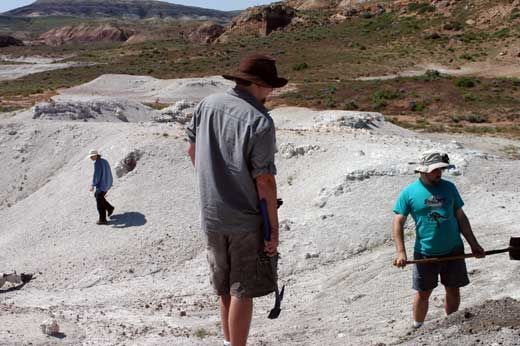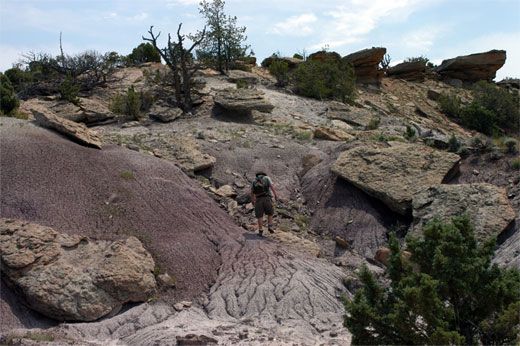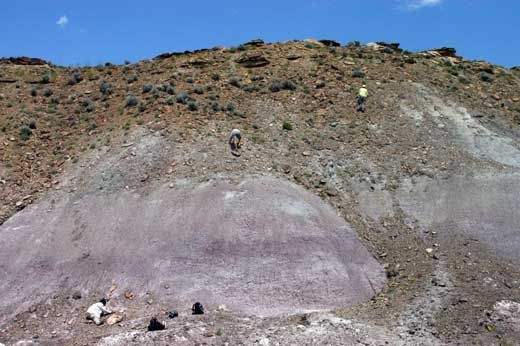Dinosaur Dispatch: Days 9, 10 and 11
A new site and more digging yields a dinosaur discovery
/https://tf-cmsv2-smithsonianmag-media.s3.amazonaws.com/filer/Dispatch4_11_sauropod-631.jpg)
After a glorious day off in Thermopolis, we spend a few days prospecting some nearby outcrops. For paleontologists, prospecting means investigating “new” sites where bone has not yet been found. The sites we are now prospecting are part of the same formations we looked at in Shell, so we suspect they might have fossils.
All of the sites on which we prospect are government land, but because a lot of the property in this area is private, it is difficult to get where we want to go without driving over someone’s land. Asking permission permission every time we need to cross anyone’s property requires a lot of patience, but with a little bit of charm and a lot of driving from house to house and into town and back, we are allowed to use most of the roads we need to access.
Prospecting is a hit-or-miss venture. We either find something or we don’t, more often the latter. But it is the only way to discover new sites and there are many outcrops that are still unexplored. We happen to get lucky on our first day of prospecting: After walking around for a few hours and finding nothing, Ruth notices a bit of bone fragment on the ground in a spot everyone had missed. After a wide inspection of the area, we find more bone that is determined to be from a sauropod. Thus, the “Sylvia Antoinette” site (named after Ruth’s daughter) is born. This expedition is uncommonly successful so far. Out of the three outcrops we visited, bone is found in seven new sites. “In this year alone, we’ve found more Cloverly sites than in the previous four years combined,” Dr, Matthew Carrano notes.
When we don’t find fossils, we discover plenty of other ways to entertain ourselves on the outcrop. Things that aren’t interesting at all before suddenly become fascinating. We find ourselves more engrossed by pretty rocks and dead mammal bones than is necessarily healthy. “Even when you’re not finding fossils, you notice things that you would never have noticed otherwise,” said Dr, Gina Wesley-Hunt. I just hope something worthwhile comes out of all this searching, because I’m afraid we may be losing our minds.


